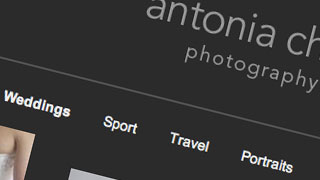4 Quick Ways to Improve your Website Content Writing
Wednesday, November 2, 2011 at 08:12AM
Tags:
seo,
content,
tips
Filed in: Website design
Read and add comments (0)
Now that you’ve got a great new website, and you have the power to control your own content with a CMS like SetSeed, you’ll be eager to start writing new content.

As a web designer I have setup countless CMS websites for customers of all computer abilities. Although SetSeed is really easy to use, it can’t write content for you. The following practical guide will help you keep all your great content consistent and well formatted. Please note this is as much a reminder for me as anyone else; I know I’m guilty of at least one of the following!
1. Use capital letters at the beginning of sentences.
I often see novice typists neglect to add capital letters at the beginning of sentences. If your keyboard skills are a bit lacking, it's quit understandable that you might want to avoid using the Shift Key while typing a letter. However, if you're writing content for the web, you really need your content to look professional. Therefore it's essential to put in the extra bit of effort to format your sentences correctly. The same goes for adding ‘full stops’ (periods if you’re in the USA) at the end of course.
2. Use “Their”, “There” and “They’re” in the right place.
- “Their” is possessive, i.e “The cats sat on their mats”
- “They’re” is just short for “They are”, i.e “They’re a really great bunch over at Phototropic”.
- “There” means “over there”.
3. Find your correct apostrophe character.
Correct: You’re
Incorrect: You`re
Incorrect: You're
The first one is a correct apostrophe character, the second example is a backtick, and the third is a prime mark.
4. Stick to a consistent narrative voice.
Firstly, it’s ok to use the first person when writing your web content. Avoid using ‘I’ when writing your main website content (but it’s ok for things like blog entries or articles which are directly credited to a single author, and a more personal tone is appropriate). You can use ‘we’ or ‘us’ to refer to your business, but avoid doing so too often. Your visitors are more interested in what your business can do for them, so try and turn a sentence around and use ‘you’ and ‘your’ instead. Most importantly of all, don't mix using ‘I’ with third person references to yourself in the same piece of writing.
If you’re a self-employed individual, and your website is just about you and your services, it can be hard to know how to write your content. If you choose to refer to yourself as ‘I’ throughout, it can read a little oddly as people don't expect that tone in the context of a normal website. If you do this you need to ensure the presentation of your website makes it very clear that it’s you who’s writing the content, so they expect it to be written in the singular first person. For example your website should look as though it represents a person rather than a business.
Often a better approach is to use third person for all the main website content. It can feel a bit strange writing about yourself like this so you might consider getting someone else to write about you instead. You can still use your blog to write naturally in the first person. Having your services described in the third person can also add credibility as it implies that it’s not just your own words used to promote yourself.

 Filtering email spam without risk of false positives
Filtering email spam without risk of false positives Why you don't need a separate mobile website
Why you don't need a separate mobile website Great crested grebe footage used in BBC's Natural World
Great crested grebe footage used in BBC's Natural World Do you need a website as well as social media?
Do you need a website as well as social media? Quick guide to ëLike-gateí or ëFan-gateí pages on Facebook
Quick guide to ëLike-gateí or ëFan-gateí pages on Facebook Website Design Primer: Common Concepts and Jargon Explained
Website Design Primer: Common Concepts and Jargon Explained New webfilm production: Beer YHA
New webfilm production: Beer YHA New SetSeed powered website design: Antonia Chick Photography
New SetSeed powered website design: Antonia Chick Photography 6 Steps to Improving Search Engine Ranking for Beginners
6 Steps to Improving Search Engine Ranking for Beginners



